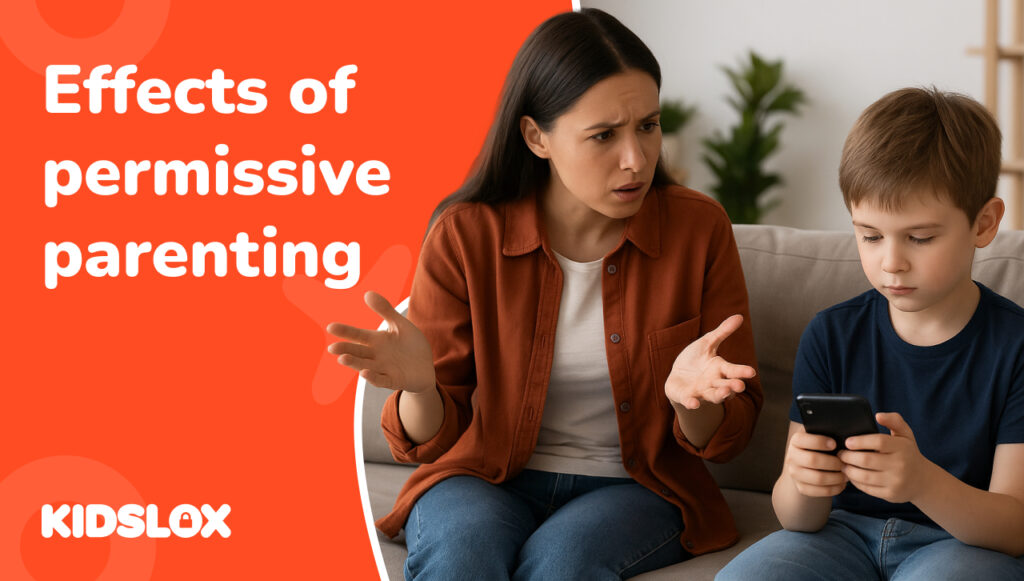Exploring the impact, consequences, and benefits of permissive parenting—and how it compares to other parenting styles.
Parenting is a dynamic and evolving journey, and as every parent knows, the way we raise our children can have a lasting impact on their development. Among the various styles of parenting, permissive parenting has garnered significant attention in recent years, especially as it has often been conflated with gentle parenting. While both approaches emphasize emotional connection, understanding, and responsiveness, they are distinct in how they address discipline and boundaries. Permissive parenting is characterized by warmth and nurturing but a lack of structure, with few rules or consequences. In contrast, gentle parenting focuses on empathy, respect, and setting clear boundaries while maintaining a focus on the child’s emotional needs.
In this Guide To, we’ll explore permissive parenting in depth, clarifying the differences between it and other popular parenting styles, including gentle parenting. We’ll delve into its definition, explore how it works in practice, and look at the pros and cons of adopting this style. We’ll also examine the psychological effects and consequences that permissive parenting can have on children.
What Are The Hallmarks of a ‘Permissive Parent’?
At its core, permissive parenting is a parenting style characterized by high responsiveness and low control. It is defined by an approach that is warm, nurturing, and highly involved, but with few rules or expectations for behavior. Permissive parents often avoid enforcing strict boundaries and may find it difficult to say “no” to their children’s desires. In this style, the child’s emotional needs are prioritized, and parents may often indulge their children’s wishes to avoid conflict.
This parenting style was first identified by psychologist Diana Baumrind in the 1960s, who categorized it as one of the four primary parenting styles: authoritative, authoritarian, permissive, and neglectful. Unlike authoritative parenting, which combines high warmth with high expectations, permissive parents are lenient, often allowing their children to have more autonomy than what is typically expected in other styles.
For example, a permissive parent may offer their child a great deal of emotional support and trust them to make their own decisions, while also refraining from punishing poor behavior or insisting on rules. Parents may even avoid correcting behavior or enforcing consequences, in favor of keeping the relationship harmonious.
What Are Some of The Key Characteristics of Permissive Parenting?
To fully understand permissive parenting, it’s essential to look at the characteristics that define it. Below are key traits often seen in permissive parents:
High Responsiveness:
Permissive parents are emotionally attuned to their children’s needs. They often provide a lot of attention and affection, making sure their children feel loved and cared for. They engage in open communication and encourage their children to express themselves freely.
Low Control and Discipline:
While permissive parents are warm and nurturing, they do not impose strict rules or guidelines. Instead, they allow their children significant autonomy and independence in making decisions. They are less likely to set firm rules or enforce discipline when those rules are broken.
Indulgence and Freedom:
One of the defining features of permissive parenting is the indulgence of a child’s desires. Whether it’s allowing them to stay up late, have extra screen time, or choose what to eat, permissive parents prioritize their children’s immediate wants and feelings over structure or limits.
Avoidance of Conflict:
Permissive parents often avoid conflict at all costs. When their child exhibits challenging behavior, they may choose not to engage in corrective actions, preferring to avoid arguments or confrontations.
Democratic, Not Authoritative:
Unlike authoritative parents who maintain clear authority while offering warmth, permissive parents take a more democratic stance. They involve their children in decisions but often lack a guiding hand in decision-making, allowing children to make more choices on their own.
Why Is Permissive Parenting Often Confused With ‘Gentle Parenting’?
Both styles emphasize emotional support, understanding, and fostering a positive relationship between parent and child. However, there are key differences. Gentle parenting is rooted in setting firm boundaries with respect and empathy, while maintaining clear, consistent discipline. It encourages parents to be mindful of their child’s emotions while also teaching the importance of responsibility and self-discipline. In contrast, permissive parenting involves high emotional warmth but lacks structure, discipline, and consistent rules. Parents may indulge their children’s desires and avoid setting firm limits, which can result in children not learning the consequences of their actions.
The confusion arises when social media campaigns, influencers, and blogs often portray gentle parenting as simply being understanding and compassionate, which overlaps with permissive parenting’s warmth. This portrayal overlooks the critical element of structure in gentle parenting, where respectful but firm boundaries are set. In essence, while both approaches are centered on nurturing relationships, gentle parenting ensures that emotional connection is balanced with guidance, whereas permissive parenting leans more toward indulgence and autonomy without clear limits.
What Does Permissive Parenting Mean for a Child’s Development?
To understand the underlying psychology of permissive parenting, it’s helpful to look at how this style shapes both the parent-child relationship and the child’s development and its pros and cons. At first glance, permissive parenting may seem like a nurturing, even loving approach to raising children. After all, these parents are highly attuned to their child’s needs and are invested in providing a nurturing environment.
However, psychologists have noted that the lack of structure and consistent boundaries can lead to problems as children grow older. Without guidance, children may struggle to learn self-discipline, responsibility, or how to cope with frustration.
The permissive approach can create confusion about authority and limits. Children raised in permissive households may not understand the value of rules or the concept of consequences for their actions. This can lead to difficulties in adjusting to environments where rules and structure are necessary, such as schools, workplaces, and later, in their personal relationships.
On the positive side, children raised in permissive environments often feel very loved and emotionally supported, which can help foster strong self-esteem. However, this parenting style is also associated with several negative outcomes.
- Lack of Self-Discipline
Children raised with permissive parenting often struggle with self-regulation and impulse control. Because these parents rarely enforce rules or punish bad behavior, children may not learn to manage their own impulses or emotions. This can lead to difficulties in environments where structure and discipline are required, such as at school or in the workplace.
- Poor Academic Performance
Research has shown that children of permissive parents may have lower academic performance compared to their peers with more authoritative or balanced parents. The lack of structure, routine, and encouragement to engage in tasks that require focus can lead to challenges in schoolwork and lack of motivation.
- Difficulty with Authority
Children raised in permissive households may have trouble respecting authority figures outside the home, including teachers, coaches, and employers. Without experiencing the natural consequences of behavior at home, they may struggle to understand the importance of following rules in other settings.
- Increased Risk of Behavioral Issues
While permissive parents may believe that giving children more freedom leads to less stress, studies suggest that children raised without clear limits or guidance can exhibit more behavioral problems, such as increased aggression, defiance, and difficulties with social interactions. The lack of boundaries can make it harder for children to navigate situations that require cooperation or sharing.
Why Boundaries Matter: Permissive Parenting on Emotional and Social Development
One of the significant effects of permissive parenting is its impact on emotional and social development. While permissive parents tend to be emotionally supportive, children may struggle with understanding boundaries and how to express their emotions appropriately. As a result, they may experience difficulty forming healthy, balanced relationships with peers and authority figures.
- Entitlement: Because permissive parents often give in to their children’s demands, kids may grow up with a sense of entitlement, expecting that they can get what they want without facing consequences.
- Low Frustration Tolerance: Without learning to navigate disappointments or frustration, children raised permissively may have lower tolerance for discomfort or challenges.
- Struggles with Independence: Despite the best intentions of permissive parents, their children may struggle to develop the independence that comes from learning to make choices within a framework of rules and guidance.
While permissive parenting is rooted in a mutual respect for a child’s individuality and autonomy, it also comes with its share of challenges. The lack of clear boundaries and structure can lead to behavioral issues, poor academic performance, and difficulty with authority, all of which can have long-term consequences.
As with any parenting style, the key to success lies in balance. One size rarely fits all!
Permissive parenting can be effective if paired with appropriate guidance and boundaries. Parents should strive to nurture their children emotionally while also helping them understand the importance of responsibility, self-regulation, and respect for authority. Creating a balanced approach that combines warmth with structure can provide children with the emotional support they need while also teaching them the skills necessary to thrive in the world outside of the home.
By finding the right mix of affection, structure, and discipline, parents can raise well-rounded, emotionally secure children who are equipped to face life’s challenges with confidence and resilience.





